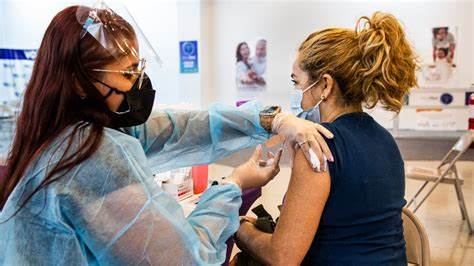
London, UK – A recent study has highlighted how the COVID-19 pandemic intensified social and economic inequalities across Britain, disproportionately affecting the most vulnerable communities. The research, conducted by leading public health and economic experts, underscores the long-term structural challenges that the crisis exposed.
Disproportionate Impact on Low-Income Communities
The study found that low-income households, ethnic minorities, and frontline workers bore the brunt of the pandemic’s economic and health effects. With many people in these groups working in essential but low-paying jobs, they faced higher risks of exposure to the virus while also struggling with financial instability.
“The pandemic didn’t create these inequalities—it amplified them,” said Dr. Rebecca Lawson, a public health researcher. “Those who were already disadvantaged suffered the most, whether through job losses, overcrowded housing, or limited access to healthcare.”
Overcrowding and Poor Living Conditions
Housing conditions played a major role in the spread of COVID-19 in Britain’s poorest areas. Many low-income families live in overcrowded housing, making self-isolation nearly impossible. This led to higher transmission rates, putting entire communities at risk.
“We saw entire households getting infected because they simply had no space to isolate,” said community health worker Michael Davies. “It’s a reminder that housing inequality is a public health issue.”
Healthcare Disparities Exposed
While the UK’s National Health Service (NHS) provided care to all, the pandemic exposed deep-rooted disparities in healthcare access. Low-income and ethnic minority communities faced longer wait times, fewer resources, and language barriers, leading to worse health outcomes.
“The data shows that these communities had higher COVID-19 mortality rates,” said Dr. Lawson. “There was a stark difference in survival rates depending on socio-economic status.”
Economic Struggles and Job Losses
The financial impact of COVID-19 was devastating for many working-class families. The lockdowns led to mass job losses in industries like hospitality, retail, and transport, disproportionately affecting those without job security or savings.
Government relief programs, such as furlough schemes and financial aid, helped many, but experts say they were only temporary solutions. As inflation rises and the cost of living crisis continues, many households are still struggling to recover.
Calls for Long-Term Reforms
Experts and advocacy groups are urging the UK government to take decisive action to address these inequalities. Key recommendations include:
- Affordable housing initiatives to reduce overcrowding.
- Better healthcare access for marginalized communities.
- Stronger worker protections for essential workers.
- Education and training programs to improve job opportunities.
“The pandemic should serve as a wake-up call,” said Dr. Lawson. “If we don’t address these systemic issues, the next crisis will hit the same communities even harder.”
Looking Ahead
As Britain moves forward from the pandemic, the government faces pressure to build a more equitable society. Whether these lessons lead to real policy changes remains to be seen, but the findings are clear: COVID-19 deepened existing divides, and without action, those inequalities will persist.








Leave feedback about this